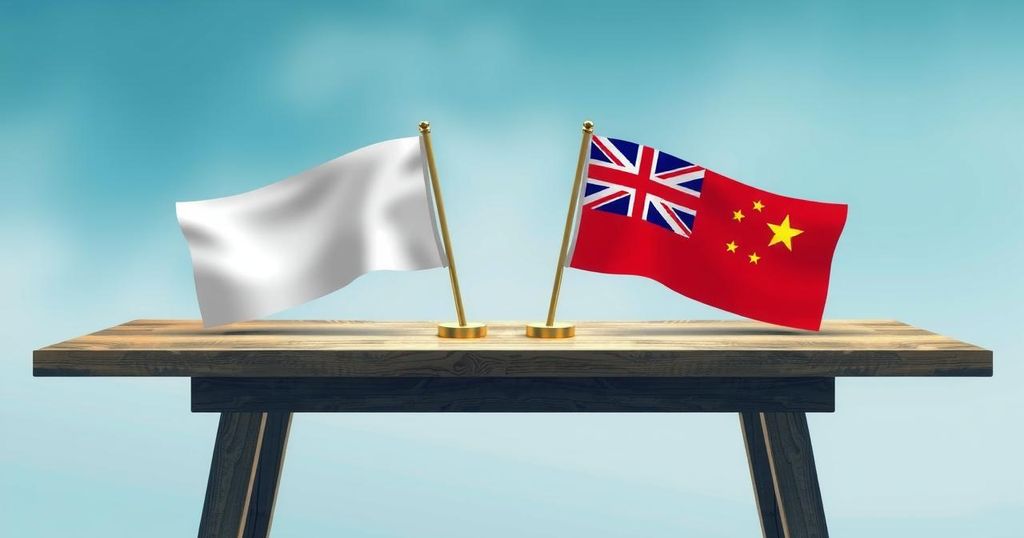Ukraine and South Korea Engage in Talks for Repatriation of North Korean Soldiers

Ukraine and South Korea are engaged in talks about repatriating North Korean soldiers captured by Ukraine. South Korean Foreign Minister Cho Tae-yul has expressed readiness to accept two of the soldiers, although none have requested this move yet. Recent interviews reveal the captured soldiers’ affiliation with North Korea’s military intelligence unit, the Reconnaissance General Bureau.
Ukraine and South Korea are currently engaged in discussions pertaining to the repatriation of North Korean soldiers who have been captured by Ukrainian forces. These talks were reported by South Korea’s Yonhap news agency and involved a phone conversation between South Korean Foreign Minister Cho Tae-yul and his Ukrainian counterpart, Andriy Sybiha. Minister Cho expressed Seoul’s willingness to accept two North Korean prisoners of war (POWs) should they wish to relocate to South Korea.
The consultations on the repatriation issue emerged around January 2025, illuminating South Korea’s constitutional stance which regards the entirety of the Korean Peninsula as its territory. This interpretation effectively classifies all North Korean residents as citizens of South Korea. As of now, none of the captured soldiers have expressed a desire to move to South Korea.
In a recent development, the South Korean newspaper Chosun Ilbo published interviews dated February 19 with the captured North Korean soldiers. The two individuals, identified as Ri, a 26-year-old sniper-reconnaissance officer, and Baek, a 21-year-old rifleman, disclosed their affiliation with the Reconnaissance General Bureau (RGB) under North Korea’s military rather than the previously speculated 11th “Storm” Corps of special operations forces. The RGB functions as North Korea’s military intelligence body, although the exact details of their unit associations remain somewhat vague due to potential reorganization within the military.
There are possibilities that certain RGB intelligence units could have been reassigned to special operations forces amid the ongoing conflict in the Kursk oblast, suggesting a complex military structure. These developments underscore the ongoing geopolitical dynamics and the intricacies involved in repatriation efforts of military personnel in conflict regions.
In summary, the discussions between Ukraine and South Korea regarding the repatriation of North Korean soldiers highlight significant legal and geopolitical implications, particularly in regard to North Korean citizens categorized under South Korean law. Meanwhile, the published interviews shed light on the soldiers’ military affiliations, suggesting a nuanced understanding of North Korea’s military hierarchy. The situation remains dynamic as none of the soldiers have requested repatriation to South Korea thus far.
Original Source: mil.in.ua







